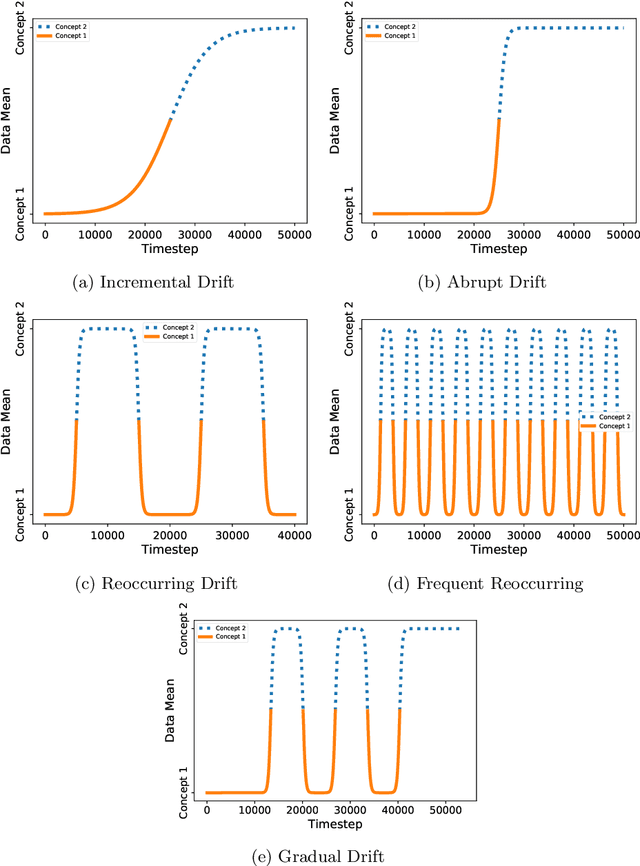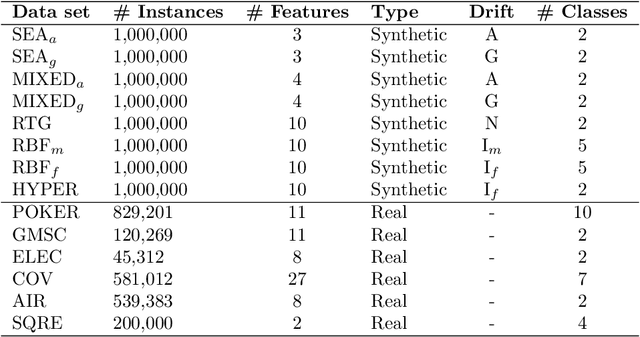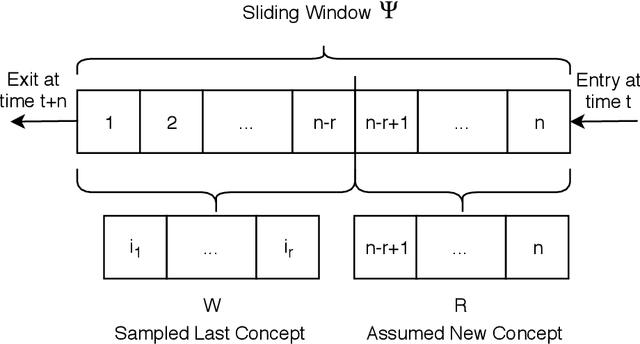Reactive Soft Prototype Computing for Concept Drift Streams
Paper and Code
Jul 10, 2020



The amount of real-time communication between agents in an information system has increased rapidly since the beginning of the decade. This is because the use of these systems, e. g. social media, has become commonplace in today's society. This requires analytical algorithms to learn and predict this stream of information in real-time. The nature of these systems is non-static and can be explained, among other things, by the fast pace of trends. This creates an environment in which algorithms must recognize changes and adapt. Recent work shows vital research in the field, but mainly lack stable performance during model adaptation. In this work, a concept drift detection strategy followed by a prototype-based adaptation strategy is proposed. Validated through experimental results on a variety of typical non-static data, our solution provides stable and quick adjustments in times of change.
 Add to Chrome
Add to Chrome Add to Firefox
Add to Firefox Add to Edge
Add to Edge